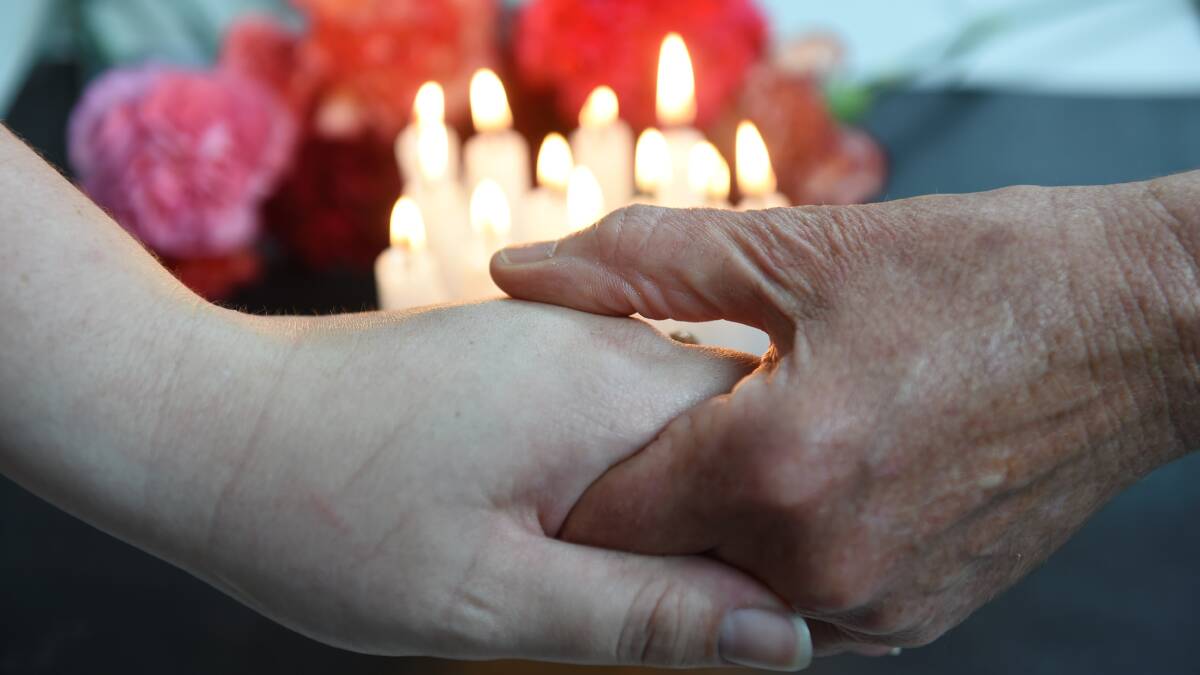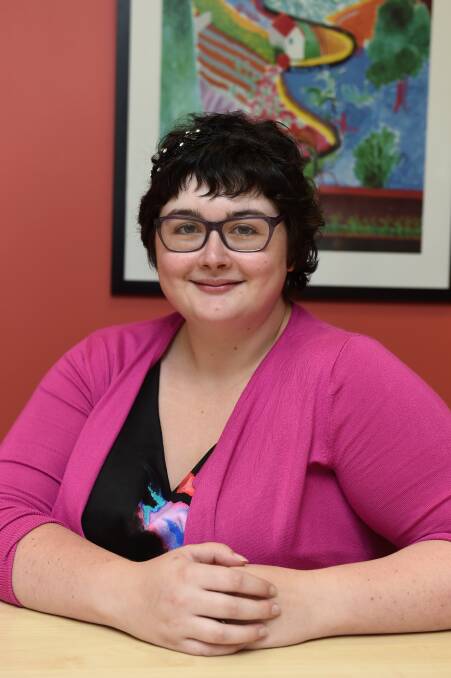
BEFORE her baby son was diagnosed with a terminal illness, Allanah Morel had never experienced the death of a loved one.
Subscribe now for unlimited access.
$0/
(min cost $0)
or signup to continue reading
Her son had type one spinal muscular atrophy, a genetic condition that caused rapid muscle wastage, poor muscle tone and affected the way he moved.
Little Xavier, who was six months old, taught Allanah to open her heart more than she ever thought possible. He taught her a different approach to care. His legacy set Allanah on a new life path.
Allanah, now 26, is now a volunteer carer with Ballarat Hospice Care and studying her masters in social work through Deakin University.
In the wake of Xavier’s diagnosis in April 2014, Allanah was introduced to Ballarat Hospice through a local paediatrician. It was whirlwind for Allanah, particularly because her eldest child Eliza, now six, had been a healthy, bubbly baby.
“I was terrified. We had some amazing conversations with the nurses, who would visit regularly and were really supportive. All the discussions made everything a little less scary,” Allanah said. “The experience with Ballarat Hospice was so positive that I wanted to come here and volunteer. People I meet all have a shared experience with a unique difference...it is a privilege people do allow me into their homes and open up when they are vulnerable.”

Ballarat Hospice offers free, specialist palliative care in the home, including advocacy, support, counselling, specialist equipment and education. Palliative care patients can be referred for symptom management and adjustment. Ballarat Hospice has a holistic approach focused on quality of life, providing clients with the best information to make the best decisions.
Allanah found the journey with Ballarat Hospice empowering amid an incredibly tough time.
“We were always allowed a chance to make the decisions. We were never told 'this is what you should do',” Allanah said. “As hard as the decisions were for my husband and I, once you have these discussions it becomes less terrifying, less unknown.”
Allanah had thought she was an open-minded person before her journey. Volunteering in care support has opened her heart and mind in ways she had never considered. Allanah allows her experience to guide her but each home she enters is very much about the people who live there – their ideas and interpretation on the world, influenced by age, background and their life experience.
Each case is about living well – whatever that means to the patient, carers and family – rather than dying. But Allanah encourages more conversation about death because death is an inevitable conclusion to all lives. Talking more about how to try and live to that moment could offer a source of comfort.
Ballarat Hospice executive officer Carita Clancy said increasingly more people were wanting care to die at home. In the Ballarat region, between 35 to 40 per cent of those choosing to die at home could remain in home palliative care. This is clear above the state average of 27 per cent.
Demand for Ballarat Hospice support and equipment is stretched with a looming gap in what the organisation will be able to offer a growing population in the future.
Ballarat Hospice’s foundations lie in a 1987 response to a community need for home-based palliative care in the region.
The hospice has adapted to changing community trends and palliative care awareness. Operations have been based at 312 Drummond Street South – an old church and its grounds – since 1986, but with a doubling of clientele in the past five years, has drastically outgrown its home.
For the first time, Ballarat Hospice has put the call out for community support. The hospice has plans to move to a lot in west Sturt Street, up in a developing community health hub, and is hoping to raise $1 million of $5.5 million needed to purchase land and purpose-built operations centre.
“The space here in Drummond Street is in a great location but it doesn’t allow the space to grow, that prevents creativity and innovation,” Ms Clancy said. “The Ballarat community has been fantastic. They have supported us in a quiet way for our history and now we are making a loud call for support.”
Hospice launched its Give to Help Hospice Grow campaign last month to help deliver care and support with the potential to grow well into the future. One community group was already well underway in planning a dance in Skipton to raise money for the campaign.
Ballarat Hospice management chairman Geoff Russell said the organisation was very private and understated. Hospice nurses drove unmarked cars, and their presence in the community tended to go unnoticed.
“This organisation came from the community, provides service to the community and now we are asking our community to help in supporting and giving to help hospice grow,” Mr Russell said.
Allanah had a vague idea about hospice, but was unsure if there had been one in Ballarat until her family’s personal experience.
One night, when Xavier was deteriorating quite quickly, Allanah put in an after-hours call to Ballarat Hospice’s 24-hour help service. She had support for her family and Xavier at her home within 15 minutes.
Hospice workers are special, inspiring people that Allanah wanted to be one of them. Xavier’s journey was short. Hospice offered Allanah basic education to ensure she could be the best carer for her son in that time, listening and working alongside the family to fulfil the family’s wishes.
Allanah continues to be inspired and absolutely loves working alongside them, helping in her unique, special way.
For more details to support Ballarat Hospice’s campaign, go online www.ballarathospicecare.org.au

